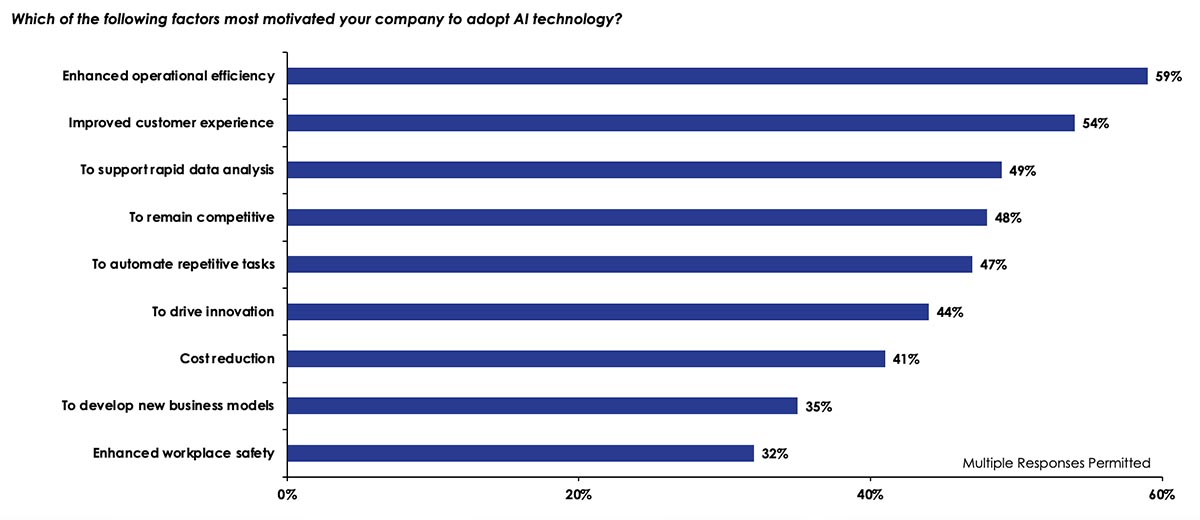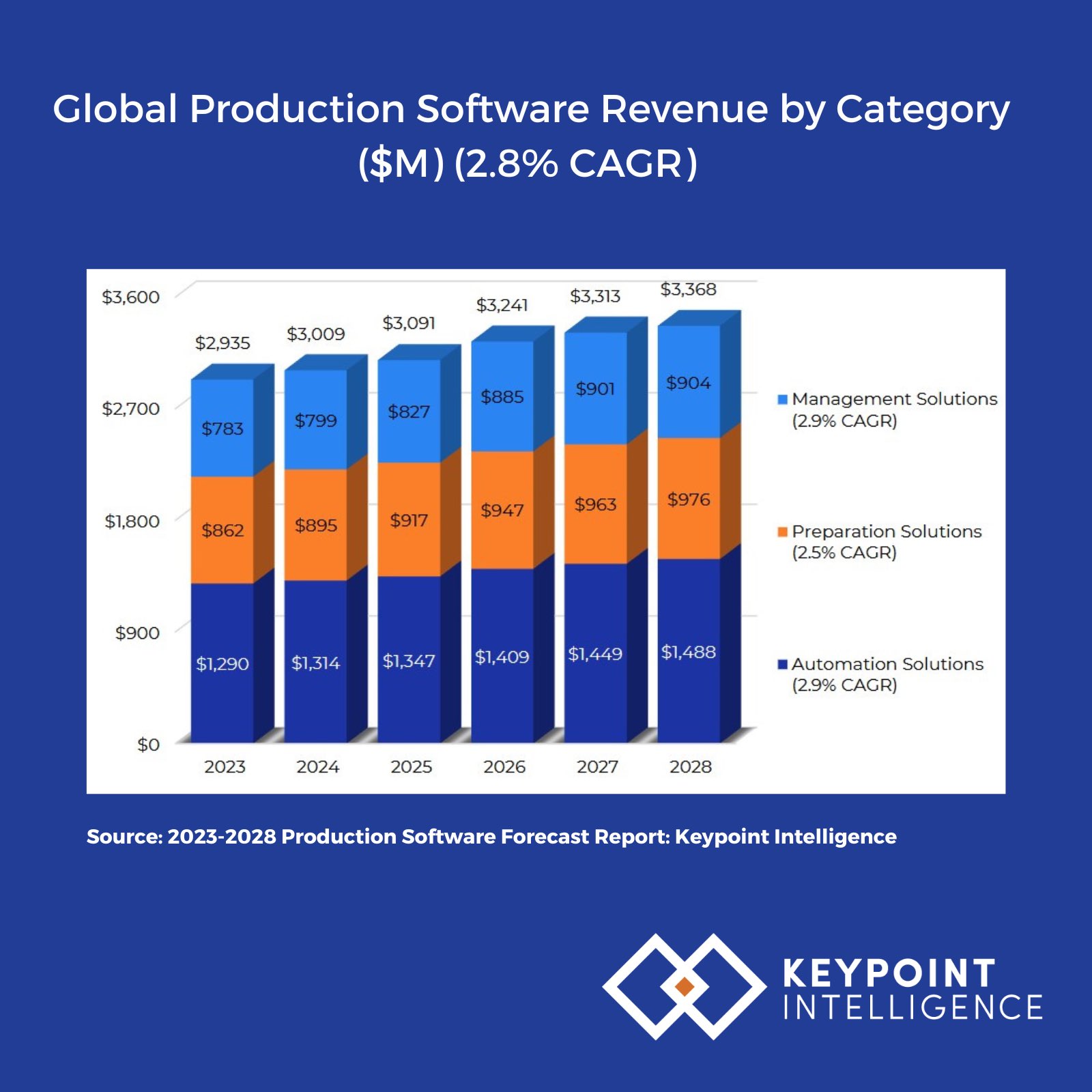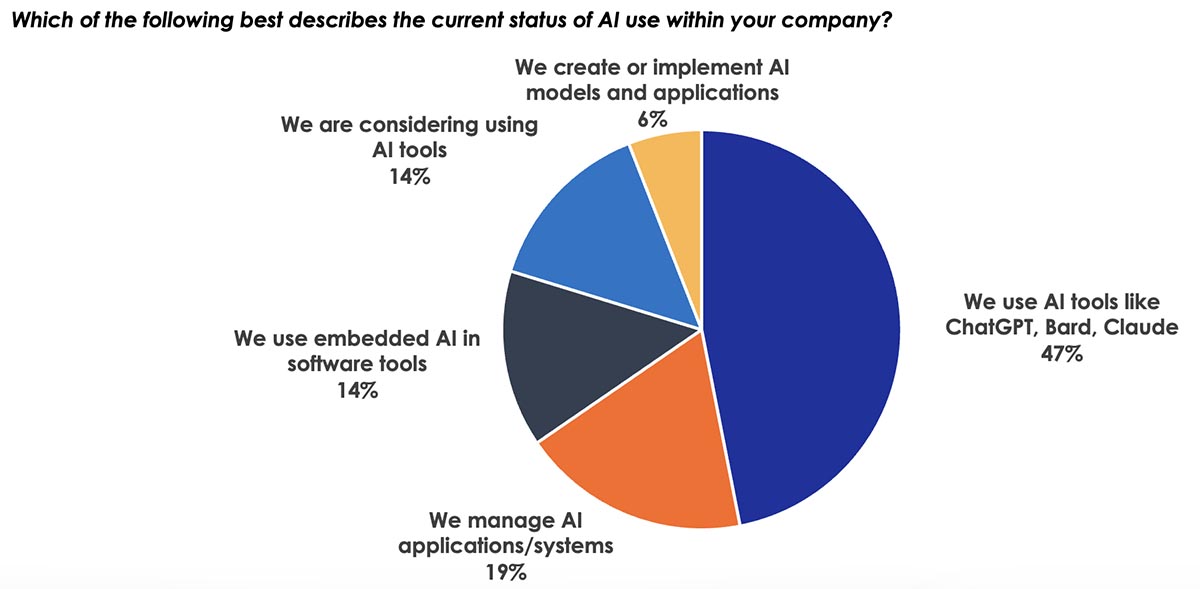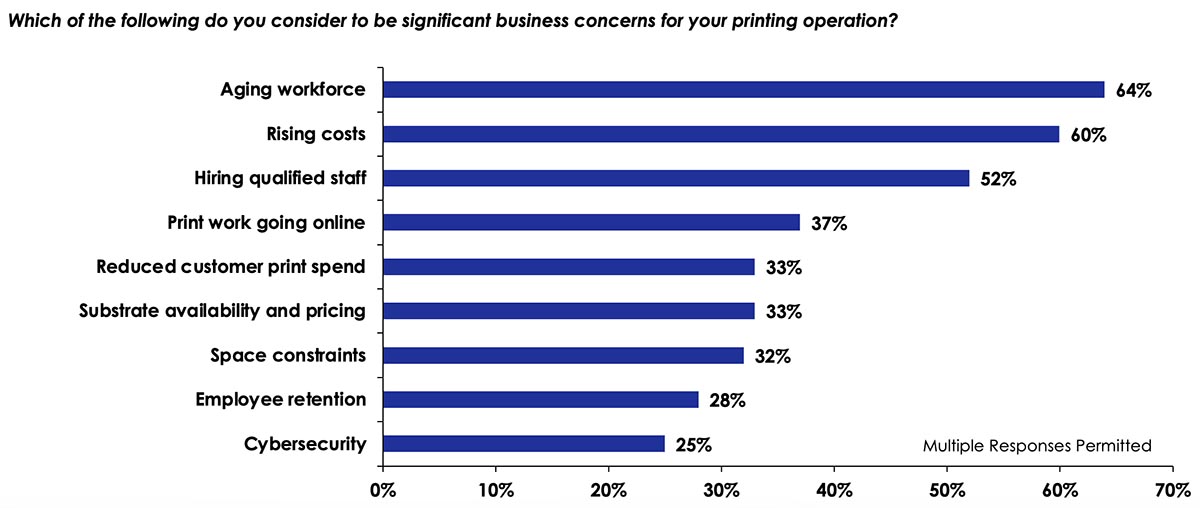- Nearly 60% of respondents to Keypoint Intelligence’s research cited enhanced operational efficiency as a key motivator for AI adoption, followed by improved customer experience.
- 41% of companies are prioritizing AI implementation in customer service, with 71% of these organizations using AI to auto-generate support ticket resolutions.
- Artificial Intelligence can free up time by handling routine tasks, enabling employees to focus on higher-value work.
By Shawn Preval
Introduction
All the way back in 1962, Hanna-Barbera Cartoons released The Jetsons, a futuristic cartoon that envisioned a world where technology simplified everyday tasks. Over 60 years later, these visions for the future are becoming increasingly real with artificial intelligence (AI). Robots can be programmed to vacuum your floor, cellphones feature digital assistants that can talk to you, and your computer will still understand you even if you misspell something.
The growing trend of AI adoption across industries has spurred the widespread integration of these technologies. AI is more than just the talk of the town—it has proven that it can walk the walk.
Why AI?
We may not have flying cars yet, but the AI revolution is bringing us closer to the automated world The Jetsons imagined. Let's explore why today’s businesses are embracing this game-changing technology.
Streamlined Operations
In areas such as customer service and operations, AI can streamline many day-to-day tasks, creating productivity gains with downstream and even upstream effects. Businesses view AI as a valuable resource that is capable of providing net positives in all aspects of their operations. Keypoint Intelligence’s 2024 State of Readiness AI Survey, which is part of our new Artificial Intelligence Advisory Service, surveyed 454 respondents on their AI know-how. 59% of respondents cited enhanced operational efficiency as a key motivator for AI adoption, followed by improved customer experience and a desire to support rapid data analysis.
Figure 1: Top Motivators for AI Adoption

N = 454 Total Respondents
Source: Artificial Intelligence Readiness Survey; Keypoint Intelligence 2024
AI can streamline processes, optimize resource allocation, and improve decision-making. With an expansive knowledge base, AI is well-versed in many areas of professional work. This can be advantageous for many operational departments, as AI can ensure quality through better searches or context enhancements. These aspects can turn into competitive advantages for many firms, as context-based searches can lead to process improvements and ultimately better quality assurance. To this end, 72% of the respondents to our research reported that AI improves data extraction, while 26% noted enhancements in data entry. These improvements, along with better decision-making and optimized resource allocation, can provide significant competitive advantages for many firms.
AI’s impact on productivity is also significant. Our survey reveals that 37% of respondents reported a 25%–50% improvement in their personal productivity due to AI, with 35% citing better time and task management as the greatest impact. This substantial boost in efficiency demonstrates the tangible benefits of AI integration in various business processes.
Improved Customer Service
AI’s operational gains will extend to other aspects of the business, particularly customer service. Depending on the scale of the organization, AI (or large language models with context windows) are adept at interpreting and synthesizing large amounts of information. As a result, AI can parse unique insights or keywords that best illustrate the challenges someone might face in customer service. We’ve all been on a call where we’ve heard the famous “I didn’t quite catch that” or “If you’d like to hear the main menu again.…” Automated calls in a linear, choose-your-own-adventure style usually leave us at a loss as we try to figure out where our square peg problem fits. Keypoint Intelligence’s research has found that 41% of companies are prioritizing AI implementation in customer service, with 71% of these organizations using AI to auto-generate support ticket resolutions. AI bypasses these trials by enabling a more refined, nearly surgical review of unique customer challenges, leading to less stress and strain when trying to recover a password or pay a bill.
Increased Automation
Artificial Intelligence can free up time by handling routine tasks, enabling employees to focus on higher-value work. Some argue that AI’s most invaluable feature is its multiplicity in terms of effectiveness. In just about every job function, there’s a place where AI can be useful. Data entry and data extraction are mundane activities present in nearly every department. AI’s ability to aid in data entry and extraction creates opportunities for increased productivity across every department. One key technology driving this is Optical Character Recognition (OCR), which AI significantly enhances. While OCR has been around for a while, AI takes it to another level—any image, screenshot, or photo can be scanned via a simple copy and paste to save companies time and money.
The Bottom Line
AI is not just a buzzword; it can be a transformative force. As AI continues to evolve and becomes progressively smarter, businesses that use it wisely can find themselves ahead of the game. Figuring out how to use AI can be tricky, but the payoffs in efficiency, happier customers, and new capabilities make it worth the effort. When you’re thinking about how to best use AI within your company, remember: You won’t achieve “Jetsons” results overnight. It's about finding the sweet spot where AI and human smarts can work together for your business. Looking ahead to the future, our survey results confirm that 38% of companies plan to expand their existing AI capabilities. Another 35% intend to start new AI projects, signaling a strong commitment to AI-driven innovations in the business world.
As we move from the realm of cartoon imagination to practical business applications, it's important to approach AI adoption strategically. Start small by seeking places where AI can help right away, like examining numbers, helping customers, or handling repetitive tasks. AI isn’t a magic wand—it’s a tool that requires the right touch to work well. The companies that flourish in the future will likely be the ones that see AI as a sidekick or assistant rather than a substitute. They will use AI to boost human creativity and problem-solving. We may not be living like the Jetsons yet, but AI is bringing us closer to that vision of effortless efficiency.
For more information, browse Keypoint Intelligence’s Industry Reports page. You can also log in to our InfoCenter to view research on AI, the channel, and more via our Artificial Intelligence and Workplace CompleteView Advisory Services. If you aren’t a subscriber or want to connect, click here.
As an Associate Consultant at Keypoint Intelligence, Shawn Preval delivers strategic insights that enable businesses to make informed decisions across a range of industries. Since joining the company in 2022, Shawn has utilized his expertise in market research, survey management, and data visualization to help clients navigate complex data challenges and optimize their strategies.









